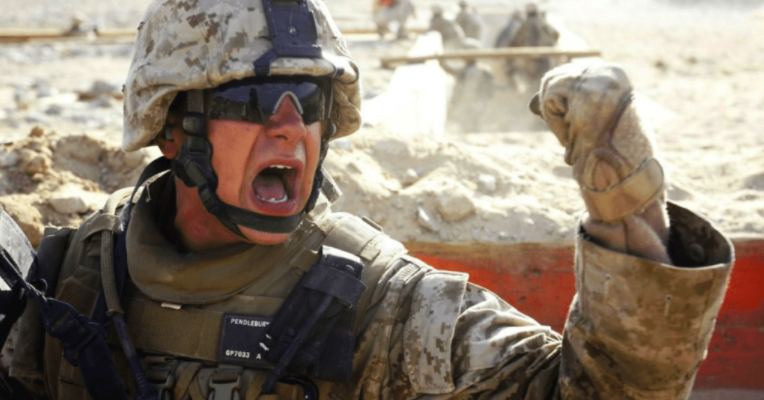Walk onto any Marine Corps base and you’ll hear all sorts of celebratory grunts, like “ERRR,” and “Yut,” echoing throughout the well-trimmed grounds. However, one grunt stands out the most among Marines from the day they enter boot camp until the day they die — “oo-rah.”
Although the military has many slang words and uses countless acronyms that could mean virtually anything to a civilian ear, the battle cry, “oo-rah,” has only one meaning.
Used as a motivational tool to push recruits and Marines beyond their limit, the classic grunt actually stems from another traditional sound.
Related: Here’s where the term ‘Bravo Zulu’ comes from
Although they are a few theories how the legendary shout started, several sources point to a single origin — aboard a Naval submarine.

Many historians believe that “oo-rah” came from, of course, Marines, assigned to 1st Amphibious Reconnaissance while traveling aboard a submarine in 1953.
When a sub is about to submerge, “dive, dive” is called out over the intercom system followed by a klaxon alarm, which makes a very distinct “aarugha.”
Click play below to hear the klaxon alarm.
Also Read: Here’s how ‘Taps’ got its name
Reportedly, aboard one of the submarines used during the Korean War was Gunnery Sergeant John R. Massaro, who shortened the sound into “oo-rah,” shouted as Marines dove out of the vessel.
As the grunt become more popular, it spread quickly throughout the Marine Corps. Soon, it became one of the ways Marines responded to various questions.

John R. Massaro at Marine Corps Base Camp Pendleton, 1948.
The symbolic grunt has since become one of the most recognized sounds used in the military today.
As for its accredited originator, Gunnery Sergeant John R. Massaro, he served in the Marine Corps for 31 years and retired as the 8th Sergeant Major of the Marine Corps in 1979.
This article originally appeared on 5 Reasons Why Troops Stick Together After the Military
4 Reasons Why Showering On Deployment is Disgusting
7 of the Greatest Songs Every Veteran Knows
6 Things You’d Take Back Before Leaving the Military
6 Dumb Things Veterans Lie About on the Internet
Follow We Are The Mighty on Twitter
READ NEXT: 5 THINGS YOU DIDN’T KNOW ABOUT THE FIRST FEMALE MARINES










